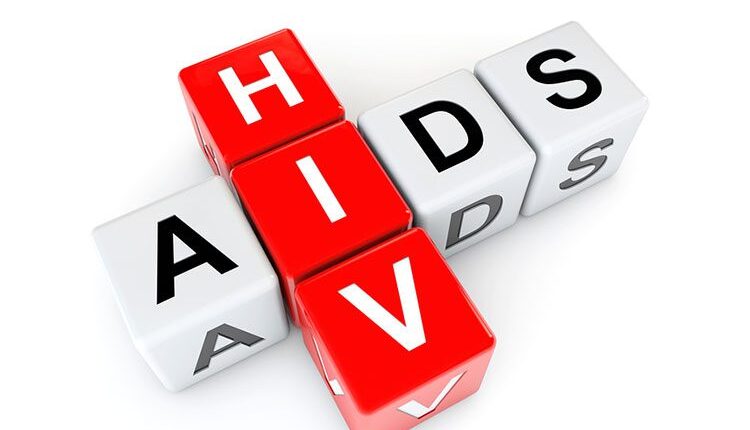Health
11 proven health benefits of ginger
Published
12 months agoon
By
Melody 911FM
Ginger may have numerous health benefits due to its anti-inflammatory, anti-nausea, and other properties. It may help you lose weight, manage arthritis, reduce menstrual symptoms, and more.
Ginger comes from a flowering plant originating in Southeast Asia. It adds flavor to sweet and savory foods and has a range of health benefits. It belongs to the Zingiberaceae family, and it’s closely related to turmeric, cardamom, and galangal.
The rhizome (underground part of the stem) is the part commonly used as a spice. It’s often called ginger root or, simply, ginger.
You can use ginger fresh, dried, powdered, or as an oil or juice. It features in many recipes as well as processed foods, home remedies, and cosmetics.
Here are 11 health benefits of ginger that are supported by scientific research.
1. Contains gingerol, which has potent medicinal properties
Ginger has a long history of use in various forms of traditional and alternative medicine. It’s been used to aid digestion, reduce nausea, and help fight the flu and common cold, to name a few of its purposes.
The unique fragrance and flavor of ginger come from its natural oils, the most important of which is gingerol.
Gingerol is the main bioactive compound in ginger. It’s responsible for many of ginger’s medicinal properties.
Gingerol has powerful anti-inflammatory and antioxidant effects, according to researchTrusted Source. For instance, it may help reduce oxidative stress, which results from having too many free radicals in the body.
SUMMARY
Ginger is high in gingerol, a substance with potent anti-inflammatory and antioxidant properties.
2. Can treat morning sickness and other forms of nausea
Ginger may be effectiveTrusted Source against nausea, including pregnancy-related nausea, commonly known as morning sickness.
Ginger may help relieve nausea and vomiting for people undergoing certain types of surgery, and it may also help reduce chemotherapy-related nausea.
While generally safe, it’s best to talk with a doctor before taking large amounts if you’re pregnant.
Ginger may not be suitableTrusted Source during pregnancy for people who are close to labor and those with a history of pregnancy loss or vaginal bleeding. It may also be unsuitable for those with clotting disorders.
SUMMARY
Taking ginger every day may help prevent morning sickness and other types of nausea.
3. May help with weight loss
Ginger may play a role in weight loss, according to studies in humans and animals.
One 2019 reviewTrusted Source concluded that ginger supplementation significantly reduced body weight, the waist-hip ratio, and the hip ratio in people with overweight or obesity.
Ginger’s ability to influence weight loss may be due to certain mechanisms, such as its potential to reduce inflammation.
SUMMARY
According to studies in animals and humans, ginger may help improve weight-related measurements. These include body weight and the waist-hip ratio.
4. Can help with osteoarthritis
Osteoarthritis (OA) involves degeneration of the joints, leading to symptoms such as joint pain and stiffness.
One review concluded that ginger may help reduce pain and disability.The participants took 0.5–1 gram of ginger per day for 3–12 weeks, depending on the study. Most had a diagnosis of OA of the knee.
However, other researchTrusted Source has not found evidence of the same effects.
However, many discontinued treatment as they did not like the taste of ginger or because it upset their stomach.
SUMMARY
Some studies suggest ginger can help reduce symptoms of osteoarthritis, especially osteoarthritis of the knee.
5. May lower blood sugar and improve heart disease risk factors
Some research suggests ginger may have anti-diabetic properties.
In a 2015 studyTrusted Source, 41 people with type 2 diabetes took 2 grams of ginger powder per day.
A 2022 reviewTrusted Source found a significant reduction in fasting blood sugar and HbA1c in people with type 2 diabetes after taking ginger supplements.
The review looked at results from 10 trials, in which participants took 1,200–3,000 milligrams (mg) per day for 8–13 weeks.
The results did not suggest that ginger supplements affected the lipid profile.
After 12 weeks:
- their fasting blood sugar was 12% lower
- their hemoglobin A1c (HbA1c) levels were 10% lower
- their apolipoprotein B/ apolipoprotein A-I ratio was 28% lower
- their malondialdehyde (MDA) levels were 23% lower
A high apolipoprotein B/apolipoprotein A-I ratio and high levels of malondialdehyde (MDA) can result from oxidative stress, a byproduct of oxidative stress. They are both risk factors for heart disease.
However, this was one small study, and more research is needed to confirm these results.
A 2019 review also found evidence that ginger can reduce HbA1c in people with type 2 diabetes, but the authors did not conclude that it can lower fasting blood sugar levels.
SUMMARY
Ginger may lower blood sugar levels and improve various heart disease risk factors in people with type 2 diabetes.
6. Can help treat chronic indigestion
Ginger may help manage indigestion by speeding up the passage of food through the stomach.
Functional dyspepsia is when a person has indigestion — with symptoms such as abdominal pain, bloating, feeling too full, belching, and nausea — for no clear reason. It often occurs with irritable bowel syndrome (IBS).
In one study, scientistsTrusted Source found that consuming a ginger and artichoke preparation before eating a main meal significantly improved the symptoms of indigestion in people with functional dyspepsia, compared with taking a placebo.
SUMMARY
Ginger appears to speed up the emptying of the stomach, which can benefit people with indigestion and related stomach discomfort.
7. May reduce menstrual pain
Ginger may help relieve dysmenorrhea, also known as menstrual pain.
Some research has suggested that ginger is more effective than acetaminophen/caffeine/ibuprofen (Novafen) in relieving menstrual pain.
However, more studies are needed.
SUMMARY
Ginger may be as effective as some medications against menstrual pain.
8. May help lower cholesterol levels
High levels of LDL (bad) cholesterol are linked toTrusted Source an increased risk of heart disease.
In a 2022 reviewTrusted Source of 26 trials, researchers found that ginger consumption significantly reduced triglycerides and LDL cholesterol, while increasing HDL cholesterol. Even doses less than 1,500 mg per day were effective.
However, it may be hard to include such high doses of ginger in your diet, particularly if you don’t like the taste of ginger.
SUMMARY
There’s some evidence that ginger can significantly lower LDL (bad) cholesterol.
9. May help reduce cancer risk
Ginger may have anticancer properties due to gingerol and various other antioxidant and anti-inflammatory compounds.
There is some evidenceTrusted Source that these compounds may help reduce the risk of gastrointestinal cancers, such asTrusted Source colorectal, pancreatic, and liver cancer.
In one studyTrusted Source, 20 people with a high risk of colorectal cancer took 2 g of ginger daily for 28 days. At the end of the study, the lining of the participant’s intestines showed fewer cancer-like changes than expected.
However, most studies relating to ginger and cancer risk have not involved humans.
SUMMARY
Ginger contains gingerol, which appears to have protective effects against cancer. However, more studies are needed.
10. May improve brain function and protect against Alzheimer’s disease
Some researchTrusted Source suggests that 6-shogaol and 6-gingerol — compounds in ginger — may help prevent degenerative diseases such as Alzheimer’s, Parkinson’s disease, and multiple sclerosis.
Oxidative stress and chronic inflammation may be key drivers of Alzheimer’s disease and age-related cognitive decline.
Some animal studiesTrusted Source suggest the antioxidants and bioactive compounds in ginger can inhibit inflammatory responses that occur in the brain. This may help prevent cognitive decline.
SUMMARY
Animal studies suggest that ginger can protect against age-related damage to the brain.
11. Can help fight infections
Ginger’s antimicrobial properties could make it useful for fighting bacterial and fungal infections.
Laboratory studies have found it may be effective against:
- Staphylococcus aureus (S. aureus), which is responsible for a range of diseases
- Escherichia coli (E. coli), a cause of intestinal infections
- Candida albicans (C. albicans), which causes fungal infections in the mouth, vagina, and so on
However, more studies are needed.
SUMMARY
Ginger may help fight harmful bacteria and fungi, which could reduce your risk for infections.
Adding ginger to your diet
If you want to add ginger to your diet, you can do so through what you eat and drink. Here are a few recipes to try:
- chicken with ginger
- garlic-ginger chicken with cilantro and mint
- spicy orange-ginger chicken
- lemon-ginger chicken
- fresh ginger tea
- ginger root tea
- Malian ginger juice
Risks and side effects
Ginger is safe for most people to consume in moderation.
In large doses, however, it can causeTrusted Source the following symptoms in some people:
- abdominal discomfort
- heartburn
- diarrhea
- mouth and throat irritation
It is likely safe during pregnancy and breastfeeding, but it is best to speak with a healthcare professional first.
Frequently asked questions
What are five health benefits of ginger?
Ginger has many possible health benefits. For instance, it may help reduce nausea, manage weight loss, lower cholesterol levels, protect nerve function, and reduce the risk of cancer.
What vitamin does ginger contain?
One teaspoon of raw ginger contains 0.1 milligrams (mg)Trusted Source of vitamin C. It also contains small amounts of calcium, magnesium, and other minerals.
Who should avoid ginger?
Ginger is likely safe for most people to use in moderation. There is no evidence that it is unsafe to use during pregnancy or while breastfeeding, but it is best to check first with a health professional.
The bottom line
Ginger contains nutrients and bioactive compounds that may have a range of benefits for your body and brain.
It may help manage nausea, prevent infections, reduce the risk of cancer, and more.
However, more research is needed to confirm that ginger has these benefits.
You may like
-


Bawumia- “Mahama’s Economic Record Bad”
-


Peter Okoye reacts to alleged song ownership by twin brother
-


DNA test more important than naming ceremony- Don Jazzy
-


NPP, NDC have mismanaged Ghana – GUM
-


T-bills: Government records 3.60% oversubscription; but cost of borrowing surges
-


2025 AFCON qualifiers: Black Stars to hold first training session in Accra today
Health
Ghana’s old, polluting cars are ‘killing people silently’
Published
5 months agoon
June 24, 2024By
Melody 911FM
Health experts sound an alarm over the dramatic increase in deaths and illnesses caused by Ghana’s growing air pollution.
Air pollution-induced illnesses including pneumonia, acute respiratory failure, asthma, heart failure, stroke and cancer were the leading causes of death in 2022 – the last year where data is available.
For four years, hypertension and acute respiratory tract infections have been the leading cause of outpatient cases in Accra, according to data from the Ghana Health Service.
The biggest culprit is Ghana’s ageing, highly polluting fleet of vehicles.
The transport sector made up of 3.2 million vehicles as of 2022, is the leading producer of air pollution, according to the Ministry of Transport’s recently released National Electric Vehicle Policy.
Ghana’s vehicle fleet is dominated by old and highly polluting vehicles that make up more than 95 per cent of domestic transport services.
Old vehicles releasing harmful pollutants have helped push Ghana’s air pollution to levels eleven times those recommended by the World Health Organisation.
“This is a wake-up call,” says Dr Carl Stephen Osei, Programme Manager, Occupational and Environmental Health Unit of the Ghana Health Service.
“Facilities are recording new induced asthmatic cases. Those with existing conditions are exacerbated due to high exposure. There is enough evidence to show that diesel-powered vehicle fumes have been classified as carcinogenic and cause lung cancers. These gases and particulate matter are killing many people silently.”
Sensors Show Dangerous Levels on Routes
To assess the level of air pollution commuters in the Greater Accra Metropolitan Area are exposed to, Afri-SET– the air quality sensor evaluation and training facility in the Department of Physics, University of Ghana and the Ghana News Agency, surveyed air pollution in May 2024.
Journalists carried Atmotube Pro low-cost air quality sensors on round trips using commercial minibuses, known as “trotro”, sedan cars used as taxis, and ride-hailing cars, from the major Tema Station, in Accra Central, to and fro 10 routes during morning and evening rush hours.
As an average, the sensors showed levels in the range of “moderate” to “unhealthy for sensitive groups”.
However, for many parts of the trips, the pollution levels spiked to the “severely polluted” range meaning even healthy people can experience adverse symptoms.
Those high levels spikes were observed along the routes: Tema Station to Adentan, Odorkor, Ablekuma, Achimota, Newtown, Spintex, Amasaman, Kaneshie, Achimota, Kwabenya, Korle-Bu, and Nungua.
The findings alarmed some passengers on the route.
“I am exposed to danger!” exclaims Jonathan Frimpong, an officer at the Ministry of Trade and Industry, after seeing the sensor register ‘severely polluted’. “I need to check my lungs because I have done this for two years.”
All people who commute to work at the Central Business District of Accra and back in trotros and taxi without air conditioning are exposed to high levels of dirty air, especially during the rush hours, according to Dr. Allison Hughes, the Facility Manager for Afri-SET.
After analysing the data, he says commuters’ exposure are high during the rush hours between 0600 hours and 1000 hours as well as 1600 hours and 1800 hours.
It shows that cyclists, riders, street hawkers and pedestrians are exposed to even higher levels of pollution.
Commuters are largely unaware of the serious dangers they face. On a recent morning trip, Godfred Addo held the door of his trotro, with one hand.
The other was firmly gripping his nose to block his nostrils. But as he attempted to do his job as a conductor – beckoning passengers to the commercial vehicle – he was forced to surrender his grip. At once the dark smoke from the tailpipe of another trotro flooded his nose, mouth and eyes.
“Mostly, I catch a cold, or feel dizzy after such incidents,” says the 20-year-old who does an average of eight round trips a day from Odorkor to the Tema Station, inhaling soot and toxic chemicals.
“When pollution breaks in traffic, you cannot see anything. There is no escape for anyone. Passengers struggle to breathe, covering their noses with handkerchiefs. I know it is dangerous, but there is no option for me, so I don’t add it to my worries. Fumes from cars is a pandemic, and it is everywhere on the road.”
Among the long line of workers waiting to board passenger buses one morning at Amasaman bus station was Georgina Awuah.
She tells GNA that it takes about two and a half hours from her home to work and the same on her journey back each day, exposing her to many hours of dangerous emissions.
“By the time I get to work my energy level is reduced for the day’s work,” Awuah says.
“At 1500 hours or 1600 hours I am thinking of getting back home. The reason is if I delay, I will have to wait for like an hour before catching a bus. Working under such circumstances feels like a punishment.”
Long commutes and poor-quality air are contributing to mental health problems too. A study published on JAMA Network, an American-based health platform found that long-term exposure to multiple air pollutants is associated with increased risk of depression and anxiety.
“Spending hours in vehicular traffic and being exposed to dirty air has some impacts,” says Dr Reginald Quansah, a senior lecturer at the University of Ghana School of Public Health. “Some studies have proposed some mechanisms justifying this. Stress is just one of them.”
Economic Burden on workers and the nation
Workers’ constant exposure to dirty air also has a strong economic burden on workers and the country.
“In the short and medium term, workers spend money buying cold and cough related drugs, medical tests and suffer loss of man hours if hospitalised. It has an impact on their pocket, especially those low earners,” says Dr Elvis Kyere-Gyeabour, the Breathe Cities Portfolio Manager in Ghana.
For workers under insurance, not all treatments for ischemic heart disease, lung cancer, stroke, as well as pneumonia in children are covered. The costs can add up to the equivalent of twice the annual earnings of some patients.
And the costs also increase in retirement. “There is enough evidence that many workers exposed to high levels of air pollution during their productive years acquire chronic upper respiratory infection and cardiovascular diseases. Some retirees are required to undergo nebulisation every day using their retirement benefits,” says Dr Kyere-Gyeabour.
The productivity loss hurts the economy and the National Health Insurance Scheme. The economic cost of air pollution is estimated at US$2.5 Billion or roughly 4.2 per cent of the country’s 2017 Gross Domestic Product according to a World Bank report.
Reducing pollution, promoting quality air
Ghana is looking at phasing out fossil fuel-powered vehicles altogether over the next 21 years, according to a projection in the National Electric Vehicle Policy but the industry says it will need immense government support even for that slow transition.
“We are the largest polluting sector, and we are ready to go electric but government needs to build the infrastructure and other structures before,” says Mr Mark Amoamah, National President of the Chartered Institute of Transport – Ghana.
Reducing emissions from the transport sector before the phase-out will depend on several interventions starting with a review of regulations, awareness, and strict enforcement of regulations, according to experts.
“As we speak, a police officer cannot arrest a driver whose car is emitting so much. This is because they do not have any instrument to measure the (emissions) level,” says Emmanuel Appoh, Executive Director of Envirofit, an environmental consulting firm and a former Director at the Environmental Protection Agency.
“But this will change when the Motor Traffic Regulation 2024 is passed and people are sensitised, and institutions are strengthened and supported. For instance, every vehicle will need to test for tailpipe emission and get a certificate. With this, a police officer will have the tool to crack down on dirty vehicles.”
Dr Daniel Tutu Benefoh, Ghana’s Focal Person of the United Nations Framework Convention on Climate Change, also wants to see government services decentralised and moved to different parts of Ghana so workers don’t have to commute so long in dirty air.
“The colonial system centralised government services and provided housing for workers,” Dr Benefoh notes. “But this failed after independence. The acquired lands where workers lived are being commercialised, while many middle and junior officers live far off and travel hours to work.”
Dr Benefoh, who leads Ghana’s Mitigation, Greenhouse Gas Inventory and Reporting Program, suggests that organisations deploy buses to pick up workers from designated points to reduce the number of vehicles on the road contributing to pollution.
“Ghana needs an efficient bus system with dedicated line,” he emphasises.
While waiting for the many plans to manifest, he advises workers to wear N95 nose masks anytime they are on the road and also avoid rush hours, if possible.
General News
HIV infections surge due to non-disclosure among couples
Published
5 months agoon
June 24, 2024By
Melody 911FM
The Ghana AIDS Commission has identified the failure of couples to disclose their HIV status to each other as a major contributor to the rising HIV infection rates in the country.
According to Dr. Kyeremeh Atuahene, Director General of the Commission, the lack of disclosure among couples, combined with the discontinuation of medication by some HIV-positive individuals, are key factors driving the spike in infections.
“The fear of the husband or wife deserting them leads some not to disclose their status. Some are afraid their spouse may discover they are taking daily medication, leading them to hide or discontinue their medicines.”
Dr. Atuahene emphasised that women are disproportionately more susceptible to HIV infection than men, urging women to take proactive measures to protect themselves from contracting the virus.
He stressed the importance of women prioritising their health and well-being by getting tested regularly, practising safe sex, and adhering to treatment regimens if diagnosed with HIV.
“Women must be aware that they are more vulnerable and therefore they should protect themselves. The transmission rate from woman to man is just about 2% whereas it is more than 12 % for a man. That is why women should not gamble with their health and their lives by just accepting that ‘if he will give them more money to have sex without a condom it’s okay for me’.
“It shouldn’t be okay for you, especially when you might have the untreated sexually transmitted disease, that can also heighten the chance of you getting HIV,” he entreated.
“Dr. Atuahene elaborated that the mucous membrane lining the vagina is significantly more delicate and susceptible to irritation than its male counterpart, making women more prone to HIV infection due to the increased fragility of their genital tract tissue.
“When a female has sex with a man, penile sex and the man ejaculates, the sperm which might contain HIV particles may remain in her for quite some time, whereas that of the male you hardly can see that.
“Secondly, the surface area of the vagina is much wider than that of the male and thirdly the mucus membrane of the vagina is much more fragile than of the male.”
The Commission reported that in 2023, an estimated 334,095 people in Ghana were living with HIV, comprising:
– 115,891 males
– 218,204 females
Breaking down the demographics:
– Children under 14: 17,550
– Adolescents (10-19): 16,381
– Young adults (15-24): 33,245
– Adults (15 and older): 316,545
Health
First Lady urges unified action to decrease HIV infections
Published
5 months agoon
June 14, 2024By
Melody 911FM
The First Lady, Mrs Rebecca Akufo-Addo, has urged a united front to fight HIV stigma, promote human rights, and ensure fair access to HIV prevention services for all.
She emphasised that issues such as discrimination, stigma, lack of access to healthcare, and socioeconomic disparity need to be addressed for Ghana to achieve effective HIV prevention.
“These barriers do not only worsen the spread of HIV but also perpetuate inequality and injustice, it is imperative that we address these barriers head-on with courage and determination if we are to succeed in our mission,” she said.
Mrs Akufo-Addo was speaking at the 2024 National HIV Prevention Summit in Accra on Thursday.
She said eradicating HIV stigma and discrimination called for a coordinated effort from all facets of society.
The summit was on the theme “Breaking Barriers, Building Bridges, Uniting for Effective HIV Response”
Mrs. Akufo-Addo stressed the need to give communities the knowledge, resources, and support they need to take charge of their health and well-being and protect themselves and their loved ones from HIV.
She said society must urgently and fully implement HIV prevention measures and make sure that everyone who needs them receives them.
Innovations in HIV prevention for all categories of persons currently include long-acting injectables, the vagina ring treatment and prevention of mother-to-child transmission protocols, which have been enhanced with highly effective antiretroviral medications and point-of-care screening devices.
Dr Kyeremeh Atuahene, Director General of the Ghana AIDS Commission said the fight against HIV and AIDS response was at a crucial stage, with scientific tools and proven strategies to eliminate the disease readily available to combat global economic challenges.
Insufficient financing, noncompliance with preventive measures, and persistent stigma and discrimination, he claimed, were preventing Ghana from providing the basic HIV prevention, treatment, care, and support services that are required to bring the epidemic under control by 2030.
Dr. Atuahene said HIV is acquired and transmitted daily in every community in Ghana.
“We have to talk about HIV prevention because new infections are very high since the sexual behaviours that drive HIV transmission and acquisition are increasingly pervasive with rising levels of high-risk sexual activities among both men and women in every region,” he said.
Dr. Atuahene said Ghana must prioritize the HIV prevention roadmap to establish a comprehensive national approach for preventative interventions and programmatic scalability, which would the country to meet the 2025 Global AIDS Targets.
He said in efforts to reduce new infections, the GAC intends to provide people-centred prevention models of care to those at high risk of acquiring HIV.
This year’s HIV Prevention Summit is expected to create a platform for stakeholders to develop a national agenda to prevent the disease.
Dr Atuahene said the summit would finalize the milestones developed by the national HIV prevention coalition during the 2025 HIV Prevention Road Map Review and Milestone Setting Workshop earlier in the year.
“Considering this, the summit will explore innovative technologies, and foster collaborations to strengthen HIV prevention strategies in Ghana while solidifying accountability mechanisms for HIV prevention progress,” he said.

Bawumia- “Mahama’s Economic Record Bad”

Peter Okoye reacts to alleged song ownership by twin brother





